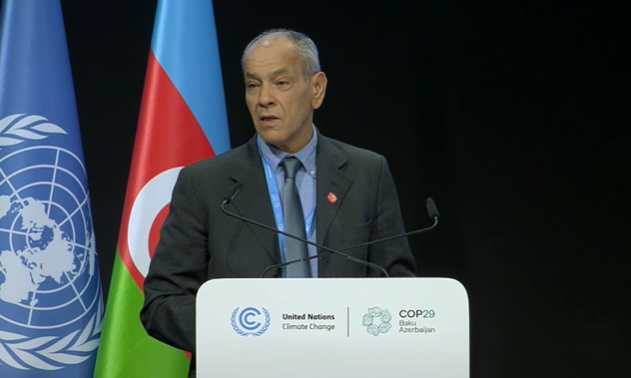BAKU, Azerbaijan, November 19. We call upon the international community to enhance global efforts, particularly in the transfer of advanced technology to developing countries, said Tunisia’s Minister of Environment Habib Abid as he addressed the COP29 summit, Trend reports.
"It is imperative that industrialized nations, who bear the greatest responsibility for emissions, provide more substantial financing to support global climate goals," he said.
Highlighting Tunisia’s vulnerability to the escalating impacts of climate change, Abid emphasized the urgency of collective global action to mitigate emissions and support countries disproportionately affected by climate crises.
"More than 30 years have passed since the adoption of the UNFCCC, yet the negative impacts of climate change continue to grow at an alarming rate," said Abid. "Extreme weather events—floods, droughts, rising sea levels—are not only environmental challenges but also threats to the stability of nations and societies, particularly those already struggling economically and socially".
Tunisia, which contributes only 0.07% to global greenhouse gas emissions, is experiencing severe consequences of climate change, including water scarcity, declining agricultural yields, and food insecurity. These challenges, Abid noted, strike at the heart of Tunisia’s economy, which depends heavily on its natural resources.
"Our land and water resources, the backbone of our agricultural sector, are under immense strain," Abid stated. "Rising temperatures and decreasing rainfall exacerbate these pressures, impacting not only the economy but also public health and overall stability".
Tunisia has developed comprehensive strategies to adapt to and mitigate the effects of climate change, including initiatives to expand renewable energy, rehabilitate degraded ecosystems, and foster innovation in clean energy technologies. However, Abid stressed that national efforts alone are insufficient without robust international support.
Abid underscored the concept of climate fairness, urging developed countries to take greater responsibility for their historical emissions. "This is a matter of justice," he asserted. "Global solidarity and fair financial contributions are essential to achieving meaningful progress".







